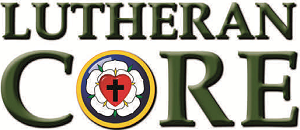Sharing The Peace
Over a period of time, several of our church family members have asked me about the sharing of the peace within our worship. When the COVID-19 virus came upon us, several asked if we would refrain from engaging in the practice. In recent conversations, the sharing of the peace of Christ has come up again. I truly want everyone here among us to understand this element of our liturgy and why it is positioned as it is. And so yes, here is a second article I’ve written for this month’s newsletter.
Sharing the peace during worship is not simply a moment when we say a quick hello to those around us. It is not a time to catch up or for brief conversation. It serves a much deeper function. Primarily, we share the peace for biblical reasons. The first comes to us from the fifth chapter of Matthew. Jesus said, “if you are offering your gift at the altar, and there, you remember that your brother has something against you, leave your offering there before the altar and go; first be reconciled to your brother, and then come and present your offering” (Matthew 5:23-24). Within the early Church, sharing the peace was a way for people in the Christian community to be reconciled to one another before making their offering at the altar. It is for this reason that sharing the peace always comes before the offering and receiving Holy Communion. We are first reconciled to our brother or sister. Then, at peace with one another, we share the Lord’s Supper in communion with the people of God.
We also share the peace because during the Last Supper, Jesus said “Peace I leave with you; my peace I give to you” (John 14:27). Again, when Jesus him-self appeared to the disciples after his resurrection,
he greeted them by saying, “Peace be with you” (Luke 24:36; John 20:19, 26). We bring these two together: just as Jesus shared his peace with us, so we should share peace with one another.
Sharing “peace” with one another is an ancient Christian tradition, not only in the words of Jesus, but also in the practices of the Christian community. Paul begins every one of his letters by saying, “Grace to you, and peace” (Romans 1:7; 1 Corinthians 1:3; 2 Corinthians 1:2; Galatians 1:3; Ephesians 1:2; Philippians 1:2; Colossians 1:2; 1 Thessalonians 1:1, etc.). This suggests that in the early Church, “Grace to you and peace” was the way Christians greeted one another. Many pastors, as do I, begin their sermon with this greeting in the peace of Christ. His is the Word preached, and so the sermon is brought to the con-gregation in the peace of Christ.
So why are there so many questions regarding the sharing of the peace? The truth be told, the tradition was either lost or reduced to a few simple words in the hymnal’s liturgy many decades ago. As progressiveness crept into the church, much of the symbolism and tradition faded into the background. Instead of traditional expressions of faith, programming and relevance welled up to the surface. Thankfully, several denominations are reforming or renewing and returning to the rites and tradition of Christian worship.
The surprising thing is not that we share the Peace during our services; it is that we lost the tradition for so long. In some ways, it was lost for centuries. Sure, it was there, in the midst of the Communion service, but it was reduced to a simple sentence from the pastor at the altar, and a plain response given by the congregation. What followed was a time for handshakes, hugs and hellos, and that was that. It had lost its meaning.
When fully understood, sharing the peace is a spiritual practice that brings congregations and individuals together in faith. Ideally, we would do this not simply with words, but also employ our usual handshakes and hugs. Sadly, as current conditions dictate a necessity for physical distance, handshakes and hugs are out of the question. Still, with smiles and the words of Christ’s peace, we can continue this traditional practice of our faith. I look forward to the next time we can share the peace of our Lord Jesus. Until then, these words will convey my heartfelt desire for you.
Grace to you and PEACE,
Pastor David Nuottila

